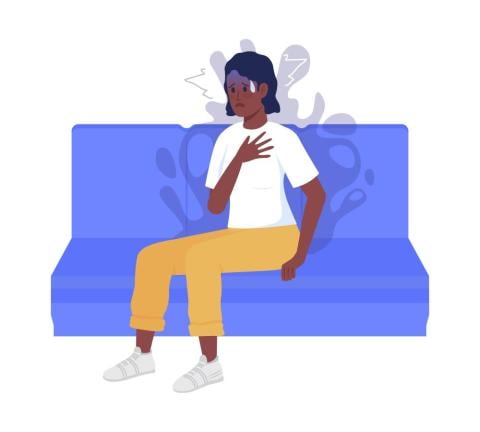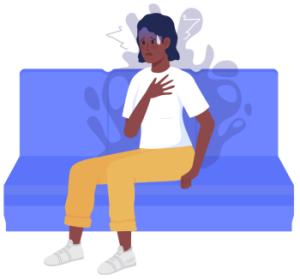Sharing My Story Changed Everything
What if your mental health came to life as shifts in the weather?
That’s the plot of my short film Under the Weather.
I made this film because I loved someone with undiagnosed depression, and we never really talked about it. Dark days came and went like weather patterns. When I tried to “cheer her up,” it was like sunlight burning her eyes. When she tried to push me away, it was like a windstorm blasting me out the door.
After four years of struggling silently, I finally shared my story with a friend. Although I worried about being a burden, my story ended up helping my friend through his own struggles— and suddenly I had hope.
Suddenly I learned to love sharing my story to help others (and myself). Because if our story could help people then at least our pain had a purpose. So with my ex-girlfriend’s approval, I began writing Under the Weather._0.jpg)
I wanted to get feedback on the screenplay from as many people as possible, especially people with depression, because I wanted to tell a fair and balanced story. The more I listened, the more I realized my ex and I weren’t the only lovebirds struggling to protect each other from storms we couldn’t see. Soon, it wasn’t just my story, it was the stories of 60+ people who helped me recover and make this film. I learned that you can’t love the depression out of someone, just like you can’t control the weather. But I also learned that we can prepare for our mental health each day, just like we prepare for the weather.
As a director, I did my best to establish better communication patterns on set than I ever had in my relationship. In the end, our team had a nice short film. But more importantly we had hundreds of conversations about mental health and relationships that would hopefully make us kinder, stronger, and more willing to be vulnerable in future friendships and relationships. A couple universities and small film festivals used Under the Weather as a discussion-starter for diverse audiences who all began having the conversations I had been too afraid to have.
You’re probably wondering what my ex thought of all this. It’s her story too, after all. How did she feel about seeing our story on screen after we failed to actually talk about it in real life? I had the same question.
So I sent it to her.
She watched the film “looking for clues,” and she was “sad when she found them”— but she said one more thing: “It was well done. And I wish you all the best with it.” After an intensely volatile relationship, those simple words felt great to me. Even more meaningful was the letter she gave me after we both got therapy and space, she wrote down everything she never told me, just like I did with my screenplay.
Hopefully, if you’re reading this, you can write your feelings down now and talk to people now— BEFORE you need to make a whole wild film project or a write a years-late letter just to process your emotions! Trust me, I tried the whole not-talking thing for four years, and it was terrible! Now I share my baggage with lots of people (kind people) and it’s soooooooo much better.
I opened up to ADAA because they meet people where they are. Their help is handmade, not one-size-fits-all. They made my story feel valuable because that’s what makes me feel valuable.
Your story is valuable too.
Because right now there is someone in your life who thinks they’re all alone. They’re afraid to share their story. The question is— will you share your story first?
_________________________
WATCH: Under the Weather (18 min.)
Share Your Story and Voice and Help #breakthestigma Around Mental Health
Support ADAA's Mission - Every Gift Makes an Impact
















